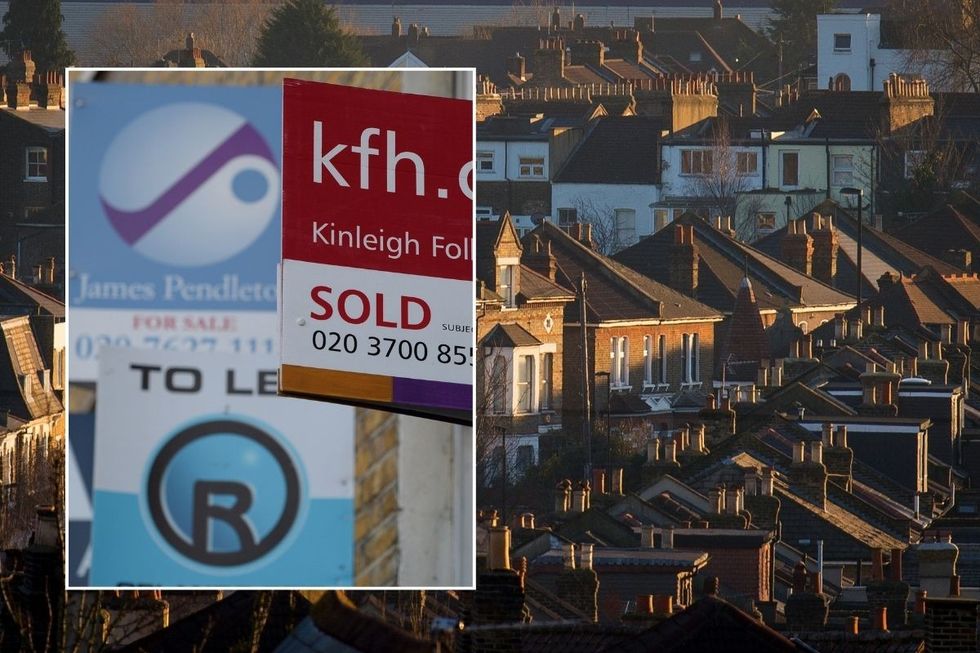Renters could face a hike to costs by as much as 13 per cent
GETTY
Renters are struggling to cope with the rise in the cost of living with wage increases projected to fall behind hikes to tenancy prices
Don't Miss
Most Read
Trending on GB News
Rent in the UK is expected to rise by 13 per cent over the next three years, according to research carried out by a leading think tank.
The Resolution Foundation is warning rent costs will outpace wage growth as households struggle to cope amid the ongoing cost of living crisis.
Since January 2022, the typical cost of new tenancies has skyrocketed by 18 per cent, the organisation found.
The property market’s bounce back from the Covid-19 pandemic, which saw evictions and repossessions paused, and wage growth are among the reasons why rent prices have risen from that month.
According to the Resolution Foundation, the recent price surge is indicative of so-called market “correction” following the pandemic’s impact.
Average earnings have increased by 13 per cent in the UK since January 2022 which has compounded the issues affecting the rental market.
Do you have a money story you’d like to share? Get in touch by emailing money@gbnews.uk.

Britons are struggling to navigate a volatile property market
PADespite wage growth easing, the Foundation claims it may take years for this growth burst to carry through the whole private rental sector.
The think tank’s report stated: “New renters will pay these new higher rents, while existing tenants reaching the end of a tenancy or forced to accept within-tenancy price rises will in future face large rent hikes.
Hypothetically, if average rents paid return to their pre-Covid level compared to earnings in three years’ time, rents would usually see more than 13 per cent price growth over that period.
This would outpace the 7.5 per cent earnings growth forecast during that time, the think tank’s analysis determined.
Cara Pacitti, senior economist at the Resolution Foundation, said: “Millions of families agreeing new tenancies across Britain have faced surging rents in recent years as we have emerged from the pandemic.
“Those rises for new tenancies are starting to slow, but how much renters actually pay will continue to outgrow how much they earn for some years to come as those not yet exposed to higher prices are hit.
“With more families renting privately, and renting for longer too, these rent surges are a bigger problem for Britain and require bolder solutions from policymakers.
“Short-term solutions include regular uprating of Local Housing Allowance to support poorer families, and the ultimate longer-term solution is to simply build more homes.”
A Government spokesperson said: “Our Renters (Reform) Bill will give people more security in their homes and empower them to challenge poor practices.
“Through our long-term plan for housing, we are investing £11.5billion in the Affordable Homes Programme and remain on track to build one million over this Parliament.
LATEST DEVELOPMENTS:

Renting is becoming more expensive than being a mortgage holder
GETTY
“We are supporting people with rising costs with £108billion to help with bills – an average of £3,800 per household.
"We have increased the Local Housing Allowance rate so private renters on housing benefit or universal credit are on average nearly £800 a year better off.”
Outside of renting, homeowners have been saddled with record high mortgage repayments following the Bank of England's decision to raise the base rate.
However, analysts are pricing in rate cuts from the central bank in the later half of 2024 which will likely result in costs coming down.








